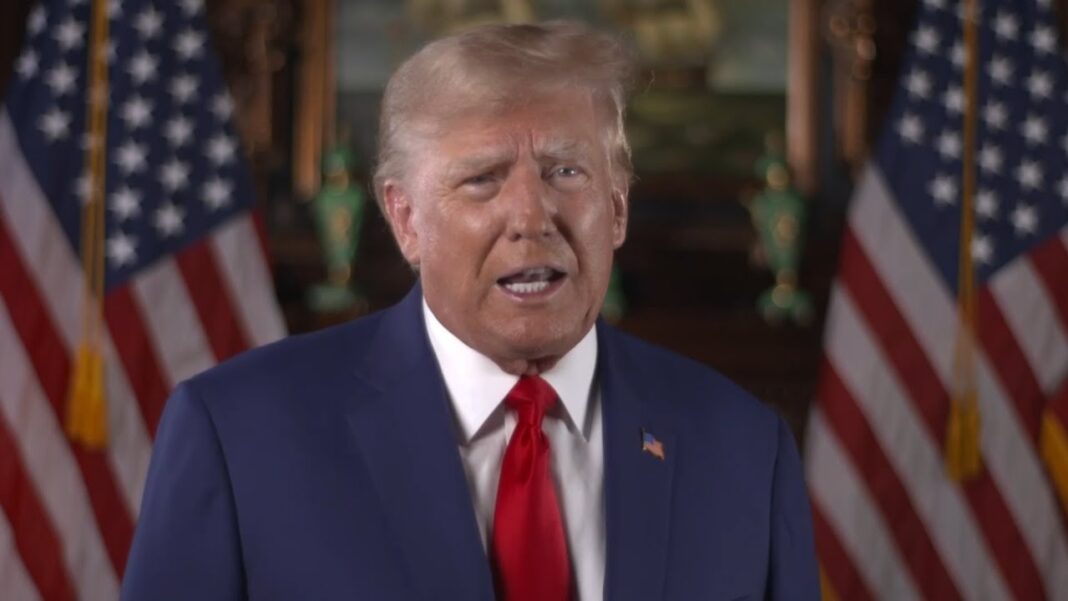While the G20 supports “proof of vaccination” for international travel, the head of WEF calls for global “restructuring,” during which time the NY Fed launches a digital money program.
In mid-November, the Group of Twenty (G20) published a statement supporting ways to facilitate “seamless international travel,” including the need to provide proof of vaccination.
Founded in 1999, the G20 is a global consortium of the world’s largest economies from industrialized and developing nations, including Argentina, Australia, Brazil, Canada, China, Germany, France, India, Indonesia, Italy, Japan, the Republic of Korea, Mexico, the Russian Federation, Saudi Arabia, South Africa, Turkey, the United Kingdom, and the United States. The European Union takes a seat as well.
The joint statement was released following the annual G20 summit in Bali, Indonesia. Leaders had gathered to address “global digital health networks” that would support pandemic prevention under the “framework of the IHR (2005), to facilitate seamless international travel, interoperability, and recognizing digital solutions and non-digital solutions, including proof of vaccinations.”
According to the Centers for Disease Control and Prevention (CDC), the International Health Regulations 2005 was developed under the World Health Organization (WHO) and serves as a “legally binding agreement of 196 countries to build the capability to detect and report potential public health emergencies worldwide.”
IHR instructs all member countries to detect, assess, report, and respond to “public health events.” It also requires them to establish and maintain capacities for surveillance and response at border crossings, and may also require “health documents” for international traffic.
Moreover, the G20 leaders said that these “global digital health networks” should build upon existing “digital COVID-19 certificates” schemes implemented throughout many countries.
Here’s a Big Concern: such vaccine passports might be used by governments to enhance surveillance of individuals and allow large corporations to manipulate their decision-making by restricting access to employment or leisure services—and, yes, travel.
Digital health certificates for travel?
Unsurprisingly, the G20 declaration comes after Indonesia’s Minister of Health Budi Gunadi Sadikin offered a similar “suggestion” about vaccination evidence to “move around” during a Business 20 (B20) panel held ahead of the G20 summit.
Established in 2010, the B20 serves as the official G20 dialog forum with the international business community. During the panel discussion, Sadikin advocated for the use of “digital health certificates” as essentially normative:
“Let’s have a digital health certificate acknowledged by the WHO. If you have been vaccinated or tested properly, then you can move around. So for the next pandemic, instead of stopping the movement of people a hundred percent, which stopped the economy globally, you know, you can still provide some movement of the people.”
Indeed, a report published by the B20 contains recommendations for G20, including the creation of “robust guidelines on health emergency preparedness to ensure global coordinated response for future crises, enhanced by a technology-enabled ‘always-on’ global health infrastructure.”
Furthermore, Sadikin added that G20 leaders had agreed to such “global digital health certificates,” the idea of which may be introduced at the upcoming World Health Assembly in May 2023, Geneva, Switzerland.
Requiring a proof of vaccination
It is common for international travellers to certain countries with a history of yellow fever as an endemic and epidemic disease to present relevant proof of vaccination. The motivation is to protect individual travellers who may be exposed to the yellow fever virus and to prevent the risk of importing the virus to countries where the vast majority of the public in those countries are not suitably immunized.
According to a report from the CDC, most patients with yellow fever are asymptomatic. Still, among the 15 percent who develop severe illness, the case fatality rate is 20 to 60 percent. In contrast, a single yellow fever vaccination reportedly provides lifelong protection for most people.
But for many, the G20 proposing proof of vaccination for international travel post-2020 might imply: we are going to demand evidence of “protection” against a virus that causes a disease, in which roughly 98 percent of U.S. patients survive on average, and has waning efficacy with every passing month, hence the justification for booster doses.
For many, something isn’t right—something is up.
That something can be illuminated by listening to remarks made by Klaus Schwab at the B20 summit. Schwab, the founder and chairman of the World Economic Forum (WEF), is a leading globalist who advocates for public-private sector partnerships and stakeholder capitalism to improve the “whole of society.”
Calls for global “restructuring” at B20 summit
Schwab couldn’t help himself—he called for a global “restructuring” of political, social, economic, and ecological systems and said this “deep systemic and structural restructuring” would result in hardship for ordinary people. He added, “The world will look differently after we have gone through this transition process.”
During his keynote address, “Harnessing the Power of Innovation for Future Economic Growth,” Schwab said that there needs to be a particular emphasis on “restructuring” supply chains and accountability for those who contribute towards polluting the environment. He also added that:
“If you restructure a company, you write off the costs and, of course, the shareholders are suffering. If you restructure an economy, the result is a reduction of income, of disposable income, which can lead to extensive social tensions, which we see in our world.”
The chairman of the WEF openly communicated his vision: there is a need for private industries to team up with public governments, and businesses need to move towards stakeholder capitalism. He said more specifically:
“Governments and businesses have to cooperate in order to become a fast fish because in our world today it’s not anymore so much the big fish who eats the small fish, but it is the fast fish who eats the slow fish.”
Talking of “restructuring” an economic system, it almost seems like Schwab is openly communicating an undertaking that many nations have accepted—perhaps drudgingly or gradually—but accepted nonetheless.
New York Federal Reserve launches digital dollars program
Around the same time the G20 published their statement, the Federal Reserve Bank of New York announced a 12-week program with major financial companies, including Citigroup, HSBC Holdings, Mastercard, Wells Fargo, and PNC Financial Services. Not exactly lightweight. The pilot program uses digital dollars to supposedly improve financial settlements, including participation from central banks, commercial banks, and regulated non-banks.
The proof of concept (PoC) program will explore a “regulated liability network” that operates exclusively in U.S. dollars. In this PoC, commercial banks issue simulated digital dollars or “tokens” representing their customers’ deposits that are settled on a simulated central bank reserve on a shared distributed ledger.
The director of the New York Federal Reserve’s Innovation Center expressed that the center “looks forward to collaborating with members of the banking community to advance research on asset tokenization and the future of financial market infrastructures in the U.S. as money and banking evolve.”
Although the program is PoC and will be conducted in a test environment using only simulated data, many central banks are exploring retail central bank digital currencies (CBDCs) for use by the general public and businesses. In addition, wholesale CBDCs are also being tested, wherein fiat money as “tokens” is exchanged among financial institutions.
Suppose money is purely digitized and provided directly by the government, as would be the case with implementing CBDCs. In that case, there is virtually no limit to the level of control that government might exert over its citizens. Normalizing CBDCs could provide officials from the federal government total control to track and monitor a person’s wealth, movement of money, and purchases.
We, the People, who care about protecting our liberties and the right to personal privacy, must be ahead of the globalist game and a government that is likely beholden to the WEF agenda.
We have already witnessed the COVID “vaccine” or injection game plan. First, there came incentives; when the majority of the public failed to get jabbed in return for free donuts, beer, and the chance to win a $1 million lottery, then came coercion. Yet, when a stubborn proportion of the public started challenging their workplace and applying for religious exemptions, many as “born again Christians,” then came the smackdown mandates. Finally, many brave men and women brought over their kids’ education from school to home, opted out of university for self-learning, and found other employment or dived into self-employment.
We, the People, need to stay well ahead of the CBDC game plan and start planning alternative paths of storing personal wealth and finding businesses that are beholden to the principle that privacy—how we choose to use our honest earned income as a lawful citizens—is a fundamental human right.
Read Original Article on CameronKeeganSubstack.com
Cameron Keegan is an independent researcher and writer on American politics, faith, and culture through a conservative disposition. To learn more, visit Dear Rest Of America.









